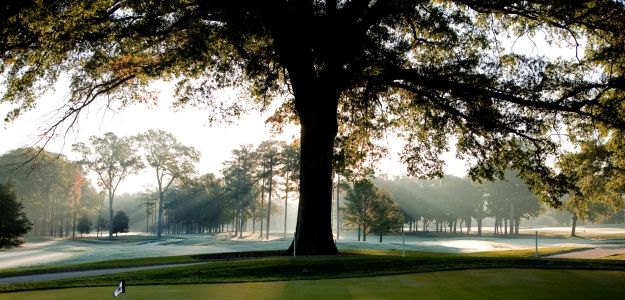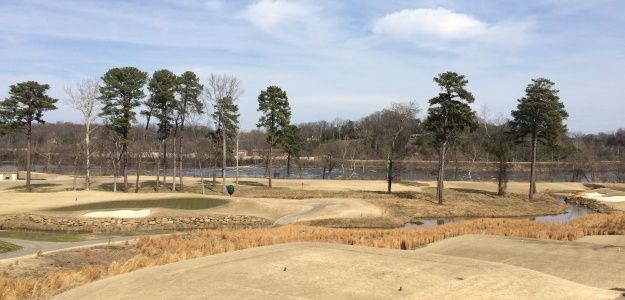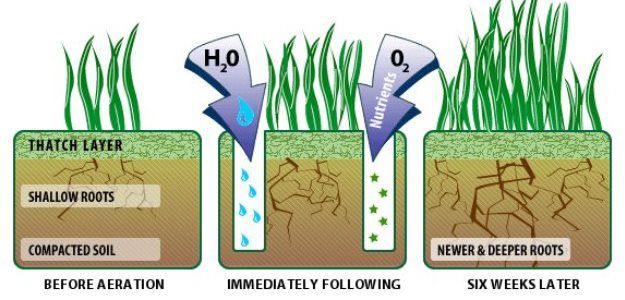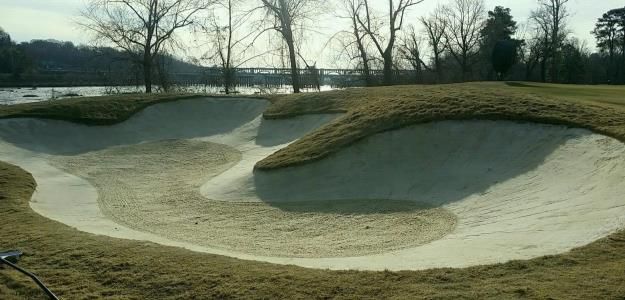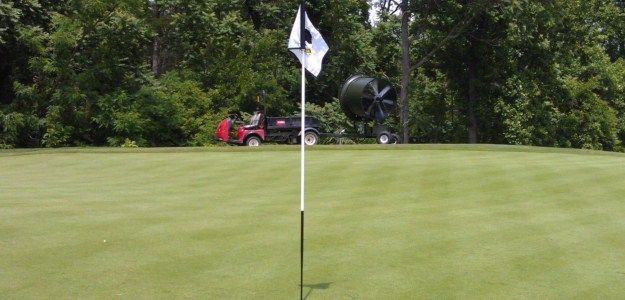Plant-parasitic nematodes are unsegmented, microscopic roundworms that feed on plants. As plant-parasitic nematodes feed, they damage the root system and reduce the ability of the plant to obtain water and nutrients from the soil. Nematodes cause a reduction in the fine feeder-roots that are important in water and nutrient uptake by the plant.
When nematode population densities get high enough, or when environmental stresses such as high heat and humidity occur, above-ground symptoms may become evident. Symptoms include yellowing, wilting, thinning, or death. Plant-parasitic nematodes usually occur in clumps, so nematode damage usually occurs in irregularly shaped patches that may enlarge slowly over time. Research has shown that nematode-damaged turf roots are less able to get water and nutrients from soil. Nematodes reduce the plants ability to combat even normal stresses such as mowing or fertilizing and reduce the plants ability to uptake fungicides.
Of all the pests that commonly affect golf course turf, nematodes are probably the least understood and most difficult to manage. There are currently no chemical options available in the state of Virginia to eradicate the type of nematodes we are battling. Our team has repeatedly tested for nematodes and treated the turf with products that help combat the effects of nematodes. Some exciting new products are coming to the turf market this fall and should give us the ability to better control nematode populations. In the meantime, we will be focused on removing all other stresses from the turf and growing healthy grass until the weather changes.
Have a great week,
Jordan Booth, CGCS
When nematode population densities get high enough, or when environmental stresses such as high heat and humidity occur, above-ground symptoms may become evident. Symptoms include yellowing, wilting, thinning, or death. Plant-parasitic nematodes usually occur in clumps, so nematode damage usually occurs in irregularly shaped patches that may enlarge slowly over time. Research has shown that nematode-damaged turf roots are less able to get water and nutrients from soil. Nematodes reduce the plants ability to combat even normal stresses such as mowing or fertilizing and reduce the plants ability to uptake fungicides.
Of all the pests that commonly affect golf course turf, nematodes are probably the least understood and most difficult to manage. There are currently no chemical options available in the state of Virginia to eradicate the type of nematodes we are battling. Our team has repeatedly tested for nematodes and treated the turf with products that help combat the effects of nematodes. Some exciting new products are coming to the turf market this fall and should give us the ability to better control nematode populations. In the meantime, we will be focused on removing all other stresses from the turf and growing healthy grass until the weather changes.
Have a great week,
Jordan Booth, CGCS
